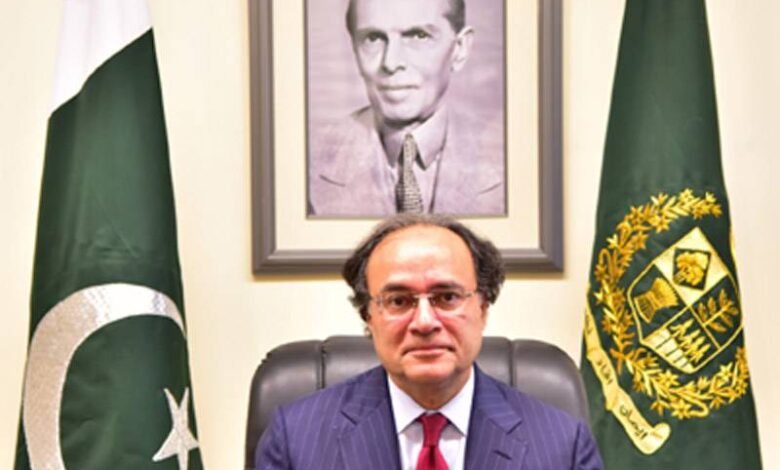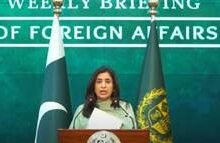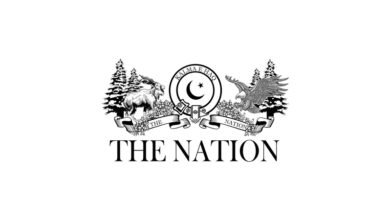
ISLAMABAD – Muhammad Aurangzeb officially took over the responsibility as Finance Minister of Pakistan after taking oath at the Presidency. On his arrival at the Ministry, he was warmly welcomed by Secretary Finance and senior officials of the Ministry. A preliminary meeting of senior management was held to facilitate introductions and initial discussions.
He was serving as president and chief executive officer (CEO) of Habib Bank Limited (HBL). Aurangzeb has been associated with HBL since April 2018 as president and CEO. Before this, he served as CEO of JP Morgan’s Global Corporate Bank in Asia, accumulating over 30 years of rich international banking experience in other senior management roles at ABN AMRO and RBS based in Amsterdam and Singapore.
The new Finance Minister would have to deal with plethora of economic issues including higher inflation and unemployment rates, dealing with International Monetary Fund (IMF), debt restructuring and others. The country is facing challenges like higher inflation and unemployment rates, ongoing IMF programme and possible engagement for fresh programme to improve balance of payments situation, debt restructuring, framing new resource sharing formula between centre and provinces, National Finance Commission (NFC) and privatization of loss-making state-owned entities. However, it would be a challenging task for the coalition government. The country is currently witnessing higher inflation rate, which would be a main challenge for the new coalition government. Inflation has remained in the range of 28 to 29 percent in the last few months mainly due to increase in energy prices. The Ministry of Finance and State Bank of Pakistan had already projected that inflation would remain on a higher side in the months to come.







